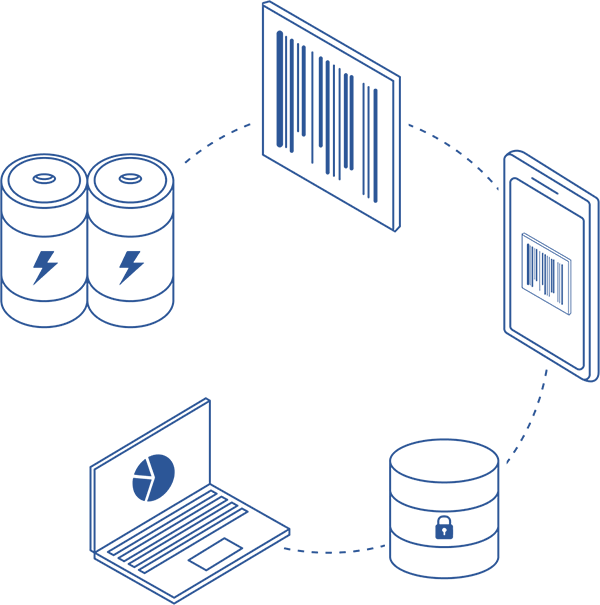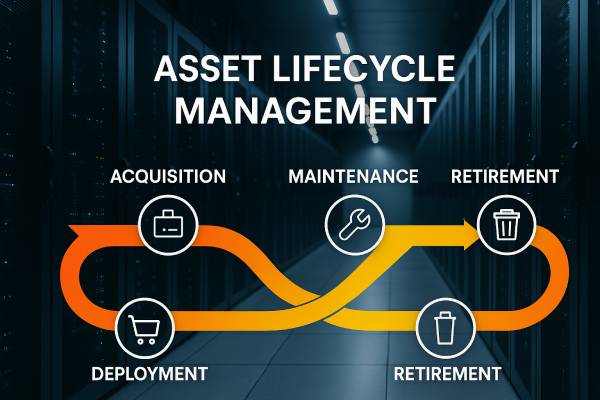Updated on July 8th, 2025
As the data center industry enters a new era defined by AI, sustainability, and global growth, data center operational intelligence is no longer a luxury—it’s a necessity.
The demands placed on today’s data centers are unprecedented. Facilities must scale rapidly to meet AI-driven workloads, comply with tightening ESG requirements, and remain resilient in the face of power constraints, supply chain delays, and a persistent shortage of skilled labor. The margin for error is shrinking, yet the complexity of operations keeps expanding.
To meet these challenges head-on, leading operators are turning to a new approach: operational intelligence.
Rethinking Facility Ops in a High-Stakes Environment
Data centers were never simple—but today’s landscape is uniquely volatile:
- AI infrastructure requires higher density, greater power draw, and tighter thermal control, putting unprecedented pressure on core systems.
- Sustainability mandates demand energy transparency and carbon accountability, yet many operators still struggle to track real-time consumption across sites.
- Talent shortages are widening, with veteran technicians aging out and a limited pipeline of trained replacements.
- Emerging markets promise growth, but require smarter planning to overcome infrastructure and regulatory hurdles.
These forces expose the limitations of legacy systems. Traditional CMMS and EAM platforms were built to manage work orders and asset lifecycles—not to serve as intelligent, real-time decision engines.
Data center operational intelligence bridges that gap.
What Is Operational Intelligence?

At its core, operational intelligence is the ability to transform raw facility data into actionable insights that inform real-time decisions, drive performance improvements, and reduce operational risk.
It’s not just about aggregating data—it’s about understanding what matters, why it matters now, and what to do next.
For data center operators, that means:
- Proactively detecting risk across power, cooling, and infrastructure systems
- Benchmarking performance across regions, vendors, and asset types
- Prioritizing actions based on impact, context, and operational goals
- Driving continuous improvement across maintenance, energy use, and reliability
Why Data Center Operational Intelligence Matters Now
As we look ahead to major industry gatherings like Datacloud Global Congress 2025, several themes dominate the conversation—each pointing to the growing urgency for data center operational intelligence.
AI & Infrastructure Stress
The boom in AI training and inference workloads is driving demand for new capacity—but it’s also pushing existing facilities to the limit. Operators must be able to understand and respond to stressors in real time, from rack-level power fluctuations to rising inlet temperatures.
Sustainability Pressure
With ESG mandates and investor scrutiny increasing, operators need to track carbon output, water use, and energy efficiency with audit-ready precision. This requires centralized data governance and visibility across the entire portfolio.
Workforce Shortages
Operators are expected to do more with less. That means giving smaller teams smarter tools that reduce the need for manual oversight and tribal knowledge. The era of static SOPs and spreadsheets is over.
Global Expansion
New regions mean new risks—power availability, permitting, logistics, and vendor reliability. Leaders need benchmarking and forecasting tools that guide site selection and operations based on real-world data, not guesswork.
Moving from Monitoring to Meaning
DCIM systems tell you what’s happening. CMMS systems log the response.
Operational intelligence tells you what to do—and why it matters.
A true operational intelligence platform goes beyond siloed monitoring or work order management. It breaks down data silos, unifies data, adds context, and surfaces insights when and where they’re needed.
This includes capabilities like:
- Intelligent alerting: Not just alarms, but contextualized bulletins that combine real time data, asset history, and manufacturer recalls—so you can act before issues escalate.
- Portfolio-wide benchmarking: Know how one facility compares to another—or to industry peers. Identify outliers, track ROI on upgrades, and optimize capital planning.
- Data-driven workflows: Automate routine tasks while surfacing strategic insights for human decision-making. This is how smaller teams stay ahead in a high-growth environment.
A New Standard for a New Era
As the digital infrastructure sector prepares to gather in Cannes for Datacloud 2025, it’s clear that data center operational intelligence is not just a feature—it’s the foundation for future-ready data centers.
Whether you’re navigating energy volatility, staffing shortages, or high-density retrofits, success increasingly depends on the quality of your data, the speed of your insights, and your ability to act on them with confidence.
Data center operational intelligence is how industry leaders turn complexity into clarity—and risk into resilience.
Ready to learn more?
Join us at Datacloud Global Congress 2025 to see how data center operational intelligence is transforming real-world data centers—or schedule a demo to explore the future of facility management today.



